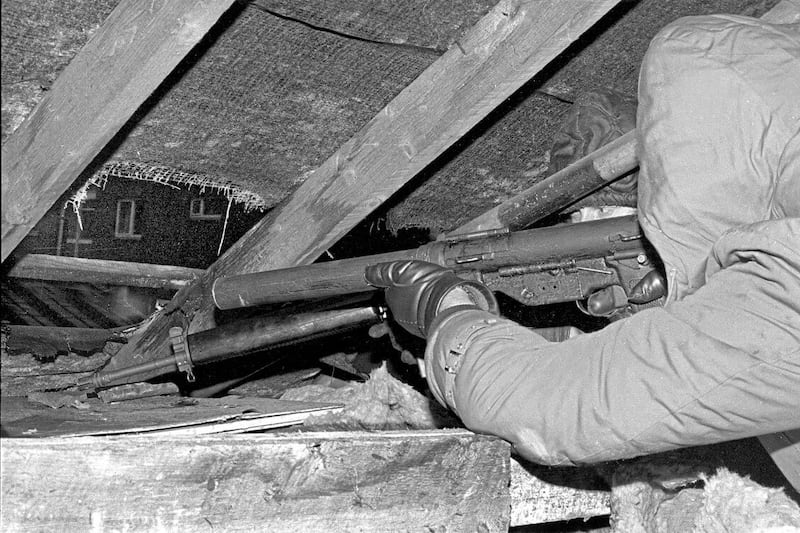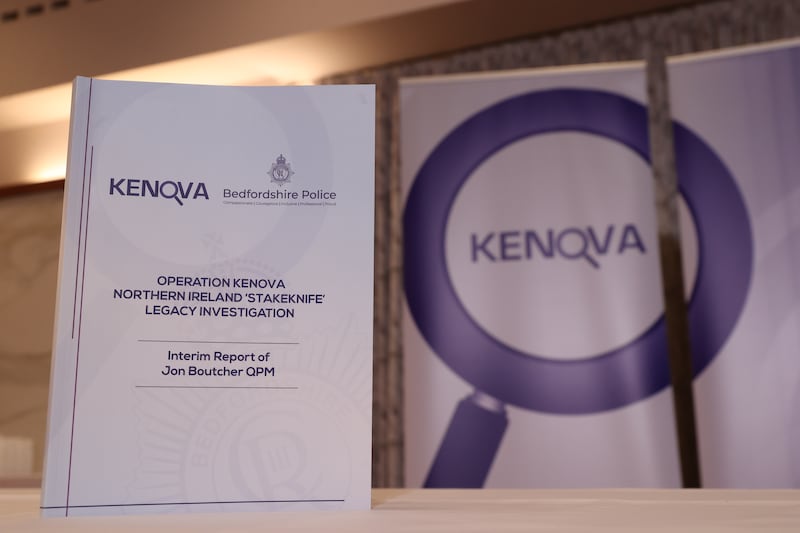Former Operation Kenova head Jon Boutcher has called for the views of victims to be taken into account by prosecutors when considering public interest factors in cases.
The current PSNI chief constable was speaking at the launch of the £40m report into the activities of the British army agent Stakeknife.
He has been identified as Belfast man Freddie Scappaticci.
In total 32 people were referred to the Public Prosecution Service (PPS) by Operation Kenova but it has been decided no action should be taken against anyone.
Files linked to the investigation were sent to the PPS in 2019 but Scappaticci died before a decision was taken.
Solicitor Kevin Winters represents families directly impacted by the Operation Kenova report.
In his report Mr Boutcher said he had “planned to work collaboratively with PPSNI on its analysis of the Kenova evidential files” and had “anticipated a strong relationship underpinned by a rhythm of meetings to consider and discuss each case”.
“Unfortunately, PPSNI does not adopt such a model in Northern Ireland legacy cases,” he added.
“There has been a general separation between PPSNI, counsel and the Kenova team. Constructive joint case conferences have occasionally taken place, but they have been too few and far between and have often come too late in the process. In my experience, such a separation is avoided in England and Wales in highly complex cases.”
“A more joined up approach would ensure prosecutors have the most comprehensive understanding of the case.”
In his recommendations Mr Boutcher added that the PPS “should pay due regard to the views, interests and well-being of victims and families when considering the public interest factors relevant to prosecution decisions in Northern Ireland legacy cases”.

The Director of Public Prosecutions Stephen Herron said: “In respect of recommendations within the report and the application of the public Interest test for prosecution, it is the position that the PPS code for prosecutors already expressly states that prosecutors are required to take into account the view of victims and, in appropriate cases, family members in deciding the public interest test.
“All of the decisions in Operation Kenova were taken on the basis that there was insufficient evidence to provide a reasonable prospect of conviction.
“The public interest test did not require to be applied.”
Mr Boutcher also remarked on the criminal justice process in the north.
“In the event that decisions are taken to prosecute, navigating the Northern Ireland criminal justice system for legacy cases has proven to be glacially slow,” he said.








